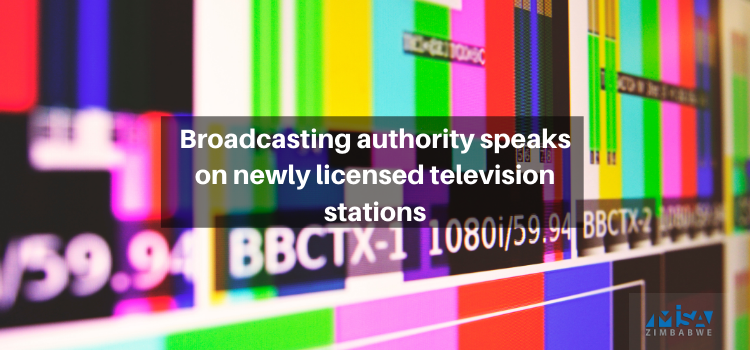The Broadcasting Authority of Zimbabwe (BAZ) will not publicise how the regulatory authority scored applicants that were awarded free to air commercial television broadcasting licences, BAZ acting chief executive officer (CEO) Matthias Chakanyuka has said.
Chakanyuka made these remarks while appearing before the Parliamentary Portfolio Committee on Information, Media and Broadcasting Services during an online hearing held on 18 February 2021.
BAZ was invited to appear before the Committee to submit oral evidence on the awarding of the six television stations’ licences by the regulatory authority in November last year.
Responding to Mutasa South legislator, Honourable Regai Tsunga, on whether the regulatory authority was going to make public how it scored those that were awarded licences in the spirit of transparency, Chakanyuka said that publicising the results would jeopardise future application processes.
On whether those that had been awarded licences were diverse, Chakanyuka told legislators that it remained to be seen whether there would be diversity in the programming of these stations.
However, diversity in broadcasting remains a major consideration in truly democratic societies.
International norms and standards consider diversity in terms of different ideological viewpoints, as reflected in the availability of media content reflecting a variety of perspectives and diversity in terms of programming, as indicated by a variety of formats and content.
There is also outlet diversity, to ensure the presence of multiple independently owned media outlets within a geographic market and in terms of minority and female ownership of broadcast media outlets.
The Authority said it was not primarily concerned with the question of diversity in the licensing process as it mainly focused on technical specifications and financial plans among other market and general considerations.
The regulatory authority said that citizens would bear the costs of securing Set-Top Boxes (STBs) and/or decoders, to be able to access these television stations as they would only be accessible on digital platforms.
Zimbabwe is currently implementing the digitisation programme and the regulatory authority updated Parliament by saying that 18 of the targeted 48 transmitters had been digitised.
MISA Zimbabwe / MAZ position
MISA Zimbabwe and MAZ reiterate that BAZ should maintain the highest standards of transparency in licensing processes to ensure credibility, fairness and diversity through those that are awarded licences.
Section 61 provides for the provision of broadcasting services as a citizen right, subject to regulations. It is therefore prudent for the regulatory authority to fairly distribute the limited frequencies by being transparent and accountable to the public.
MAZ and MISA Zimbabwe further note the impact of the COVID-19 global pandemic on the economy, which may affect the operations of the licensed television stations.
The income of commercial broadcasters is largely made from advertising and with the downsizing and closing down of businesses, there is a real risk that the licensed television stations may not be able to kick-start their broadcasting within the stipulated eighteen (18) months.
MISA Zimbabwe and MAZ, therefore, urge the government to ensure that these newly licensed television players, and by extension the entire media sector, are sustainable.









